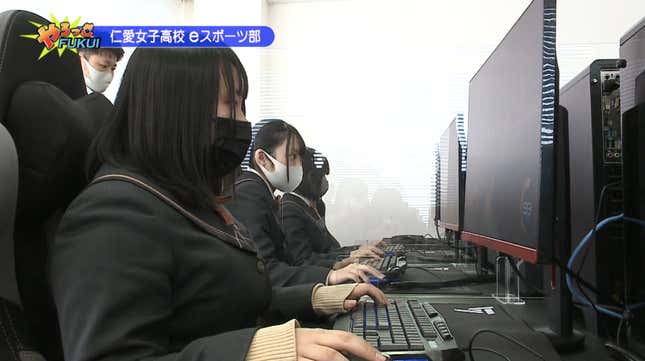
Jin-Ai Girls’ High School, which resides in the city of Fukui, established an esports club last October. It’s even garnering national media attention.
As Mainichi reports, such clubs aren’t unusual among school boys in Japan, but are rare at all-girls institutions. Last year, Fukui Prefecture created an esports organization to help the spread of esports. The organization put out a call to high schools to establish clubs.
Currently, there are twelve members. The school’s public relations office has been converted to the clubroom, which is now outfitted with six computers for the members to use for play and practice.
“I played badminton for six years, and more important than that is in esports, you use your brain,” said one member, who’s a junior. “It really doesn’t matter if you’re a man or a woman.”
The club has their eye on winning nationwide competitions, but the most important thing might not be awards and accolades. It’s what they’re learning.
As Mayu Mura, the club’s president, pointed out, “Your ability, not your gender, is important. There are also women players on professional teams.”
In the past few years, there has been a strong esports push in Japan from local governments and politicians. Though, the country’s professional esports licensing system does seem to be a complete mess.
What’s interesting about the club is that students from different grades can be paired together. In high school in Japan, there is a distinct hierarchy between students in different grades with the kouhai (younger student) and senpai (older student) relationship.
One member said that even though their grade levels might be different, there’s a sense of equality. For example, members can give straightforward directions to each other while playing. Said Koharu Kouhama, a third year student, “I think everyone’s ability to communicate has increased.”